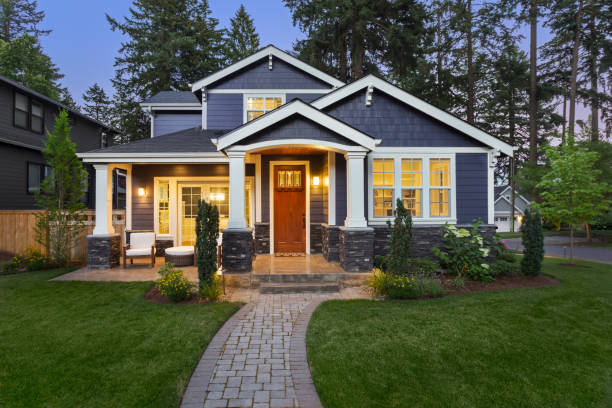Get Support
123-456-789-10
Cheap houses in Lahore, How to buy them?
Pakistan's real estate market in 2024 is experiencing dynamic changes shaped by various economic, political, and regulatory factors. With increasing urbanization and growing population needs, the sector continues to be a key investment avenue, though it faces several challenges. Below is an overview of the current trends and challenges in Pakistan's real estate market this year.
1. Market Growth and Urbanization
The real estate market in Pakistan has seen steady growth, especially in urban areas. Major cities like Karachi, Lahore, Islamabad, and Rawalpindi continue to be hot spots for both residential and commercial property investments. The country's expanding middle class, coupled with increased demand for housing and commercial spaces, has driven this growth.
- Karachi remains the commercial hub, with rising property prices in posh areas such as DHA and Clifton. New developments on the city's outskirts also attract buyers seeking affordable options.
- Lahore is witnessing rapid real estate development, especially in gated communities and housing societies like Bahria Town, DHA, and LDA City.
- Islamabad remains a favorite for investors due to its planned development, security, and proximity to government offices.
2. Impact of Government Regulations
The Pakistani government has been actively involved in regulating the real estate sector. In recent years, several policies and reforms have been introduced to improve transparency, combat speculation, and encourage more genuine investment.
- Taxes and Documentation: Stricter taxation policies have been implemented to curb real estate speculation and unregistered investments. The introduction of a fair market valuation for properties has led to greater documentation, although it has slightly slowed down market activity due to increased costs for buyers and sellers.
- Naya Pakistan Housing Scheme: Under the government's affordable housing scheme, initiatives have been taken to provide low-cost housing for the lower-income population. This move has opened up new segments of the real estate market, though challenges remain in execution and financing.
3. Rising Demand for Affordable Housing
One of the biggest challenges facing Pakistan's real estate market is the lack of affordable housing. With the increasing population, especially in urban centers, the demand for affordable housing is at an all-time high. However, the supply side has not been able to keep pace. Developers and investors are still focused on high-end housing societies, leaving a gap in the market for low- to middle-income housing solutions.
In 2024, the government's push for affordable housing projects through initiatives like the Naya Pakistan Housing Scheme aims to address this issue. However, bureaucratic hurdles, limited financing options, and high inflation have slowed down the progress of these projects.

4. Challenges Due to Economic Conditions
The overall economic situation in Pakistan, including inflation, a weakening currency, and the high cost of financing, has affected the real estate market. Rising construction costs, driven by inflation in raw materials such as cement and steel, have led to an increase in property prices, making it more difficult for the average buyer to afford homes.
Additionally, high interest rates on loans and mortgages have discouraged buyers from taking on new investments. Many buyers are waiting for stability in the market, which has led to a reduction in property transactions.
5. Impact of Overseas Investment
Overseas Pakistanis continue to play a critical role in the real estate market by investing in property back home. However, the devaluation of the Pakistani rupee and concerns about political instability have led to a slight reduction in foreign investment in 2024. Despite this, there is still considerable interest from the Pakistani diaspora, particularly in secure and gated communities like DHA and Bahria Town.
The government has also made efforts to facilitate overseas investments through Roshan Digital Accounts, allowing non-resident Pakistanis (NRPs) to invest in real estate remotely. This has helped sustain some level of foreign capital inflow despite the challenges.
6. Technological Advancements and Smart Cities
The real estate sector in Pakistan is slowly adopting technology, with an increasing trend towards digitization and smart cities. Several developers have started integrating smart technologies into housing projects, offering features like smart security systems, energy-efficient buildings, and digital infrastructure.
Islamabad's Capital Smart City and Lahore's LDA City are two prominent examples of smart city projects that are attracting attention from both domestic and overseas investors. These projects are seen as the future of urban living in Pakistan, promising a blend of luxury, technology, and sustainability.
7. Environmental Concerns
Sustainability is becoming a key factor in the real estate sector as Pakistan grapples with environmental issues like water scarcity, pollution, and deforestation. More developers are focusing on eco-friendly projects, incorporating green building techniques, and providing amenities like water recycling, solar power, and green spaces in residential and commercial developments.
Conclusion
Pakistan's real estate market in 2024 is a blend of opportunities and challenges. While the demand for housing continues to grow, economic conditions, regulatory changes, and the need for affordable housing pose significant hurdles. However, with government initiatives like the Naya Pakistan Housing Scheme and the increasing interest in smart cities and technology-driven projects, the future looks promising. Investors, both local and international, are likely to remain interested in the sector, particularly in urban and high-growth areas. To fully realize its potential, the market will need continued reforms, transparency, and a focus on sustainability and affordability.
Looking for a dream home?
We can help you realize your dream of a new home
